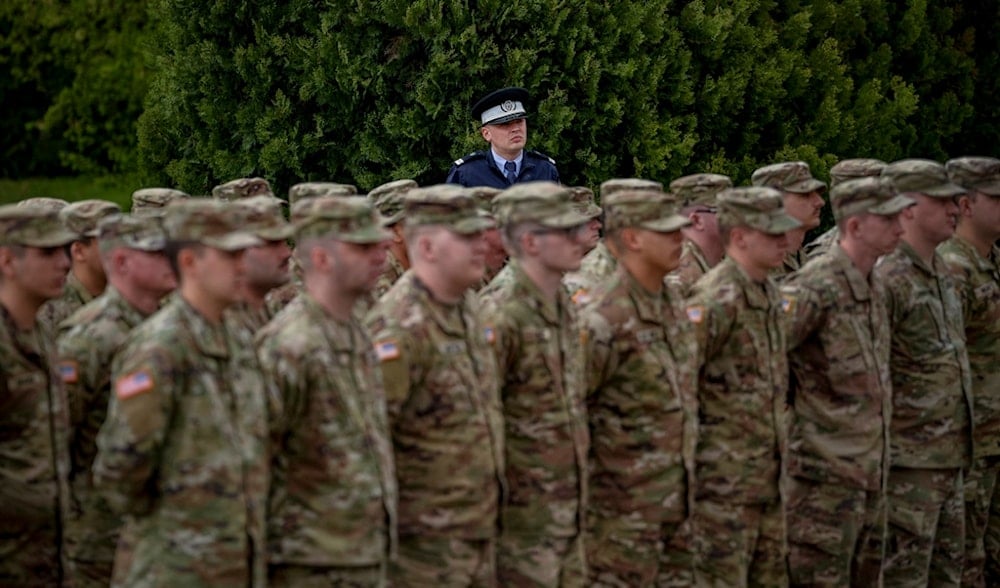Trump admin. weighs major cutbacks to US troop presence in Europe
Although the United States has long played a central role in Europe’s defense, officials now argue that maintaining such a large presence is no longer sustainable.
-

A Romanian policeman watches as US military personnel attend a transfer of authority ceremony from the 101st Airborne Division to the 10th Mountain Division in Bucharest, Romania, Wednesday, April 5, 2023 (AP)
As the Trump administration begins shaping its defense policy in a second term, a sweeping review of US military deployments abroad is underway, with a focus on Europe.
The outcome could significantly reduce America’s military footprint on the continent, marking a sharp shift from decades of transatlantic defense cooperation.
The review, known as a "posture review", is being driven by several key factors: a push to cut federal spending, a growing strategic focus on China, and an interest in improving relations with Russia.
The administration has also expressed frustration with what it sees as an overreliance on the US by NATO allies. “Our European friends must play a bigger role in the future of this continent,” Vice President JD Vance said in February at the Munich Security Conference.
While the United States has long played a central role in Europe’s defense, officials now argue that maintaining such a large presence is no longer sustainable, particularly as military planners shift attention to a potential conflict in the Indo-Pacific. Assets such as missile defense systems and aircraft currently based in Europe could be redeployed to counter China.
Read more: Former MI6 chief: Trump reelection problematic for NATO
Rather than a full-scale withdrawal, officials may seek quick wins by cutting rotational deployments and temporary troop rotations to Eastern European countries like Poland, Romania, and the Baltic states.
These forces were increased after the 2014 Russia-Ukraine conflict and could be scaled back rapidly. Permanent US troops, especially in Poland, may be less affected due to strong bilateral ties and Polish investment in American facilities.
However, defense experts warn that reducing US forces too quickly could embolden Russia, weaken NATO, and raise doubts about US commitments globally, especially in the eyes of China. They also note that Europe remains America’s largest trading partner, and a stable continent is vital to US economic and security interests.
Any drawdown, analysts say, should be carefully tailored to meet strategic goals rather than executed hastily. A balanced approach could allow the US to bolster its Indo-Pacific posture without jeopardizing long-standing alliances in Europe.

 2 Min Read
2 Min Read










